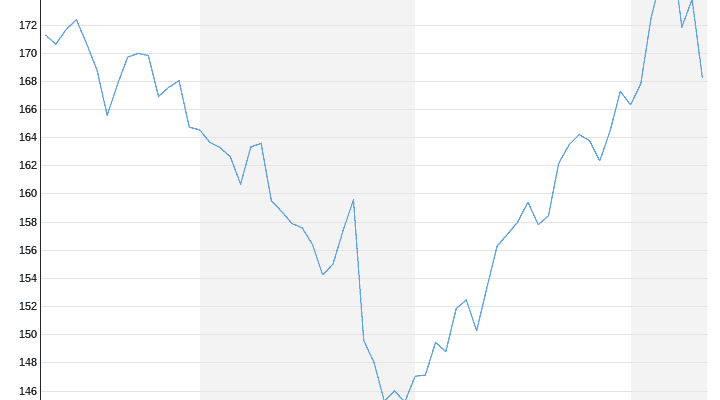Thursday November 11, 2021
Think jacket recycling program
Nike systematically destroys new sneakers
In the race against climate change, the sporting goods manufacturer Nike also wants to make a contribution. For example, the company promises to recycle its customers’ old shoes. But not only worn out sports shoes end up in the recycling halls, but also brand-new ones.
The fashion industry is now even more responsible for CO₂ emissions than aviation and shipping combined. The rapid growth of fast fashion is particularly well illustrated by the example of sneakers: Nowadays, twice as many sneakers are sold as in 2012 – the industry generates sales of 70 billion US dollars per year as a result.
The image of “climate killer” does not suit any large sporting goods manufacturer, which is why some are actively trying to fight against the bad reputation with recycling programs. For example, Nike boss Jan Donahoe assures on the company’s website that sustainability is one of the top priorities. “In the race against climate change, we don’t just wait for solutions. We create them.” Take-back boxes with the label “Recycle your old shoes” have been set up in the Nike stores as an example. The company promises to recycle old shoes. According to this, “Nike Grind” is to be created from worn shoes, a material from which new shoes, clothing or even sports surfaces are made.
Research by ARD, the weekly newspaper “Die Zeit” and the research startup “Flip” now show, however: under the guise of the recycling program, with which the group tries to present itself as particularly sustainable, new goods are also systematically being returned, for example as returns from customers and customer was returned, destroyed. After the research, employees of a recycling factory in Herenthout, Belgium, throw new shoes into a machine, in which the shoes are then destroyed. Furthermore, the editors have evidence that the goods are returned by customers, so-called returns.
The recycling hall is operated by Nike in cooperation with a local waste disposal company. The reporters ordered sports shoes directly from Nike on their German website and then, equipped with GPS trackers, sent the shoes back to Nike as a return. The journalists were able to follow the return route: the shoes were brought to the recycling facility in Herenthout within a short period of time and then destroyed.
At the request of the weekly newspaper, a Nike spokeswoman admits that at least returns “that show signs of possible damage or signs of wear” are destroyed and recycled. By only speaking of “signs”, the company opens up a wide scope for interpretation. The group denies that new, flawless shoes are destroyed. The spokeswoman writes: “Unworn and flawless items are being put back on the shelves for resale.”
Destroying returned goods that are fit for use is prohibited in Germany. Christopher Stolzenberg, spokesman for the Federal Ministry for the Environment, describes the issue in “Die Zeit” as a possible violation of the German recycling law. “According to the waste hierarchy, avoiding waste has top priority and takes precedence over all other disposal measures such as recycling,” the weekly newspaper Stolzenberg quotes. According to this, when products are sold, it must be ensured that their usability is maintained and that they do not become waste. The responsible state authority must take action, there is a threat of a fine of up to 100,000 euros. Since Nike Deutschland GmbH is registered in Berlin, the Berlin Senate Department would be responsible for the environment, traffic and climate protection.
